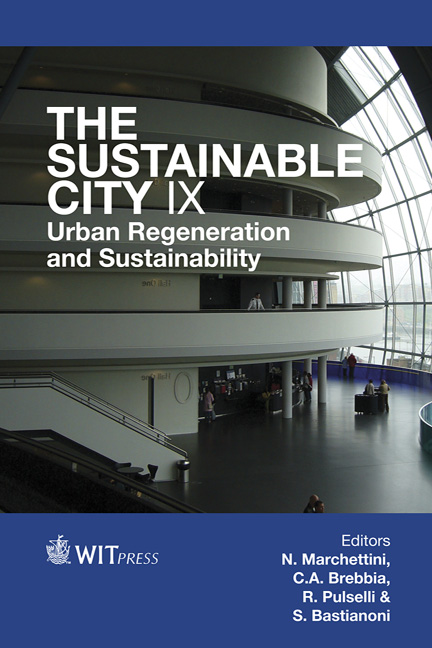Supporting Cities’ Efforts Towards A Highly Efficient And Sustainable Resource-efficient Future: The RE-SEEties Integrated Toolkit
Price
Free (open access)
Transaction
Volume
191
Pages
13
Page Range
1075 - 1087
Published
2014
Size
411 kb
Paper DOI
10.2495/SC140912
Copyright
WIT Press
Author(s)
M. Salvia, C. Nakos, S. Di Leo, S. Papagianni
Abstract
Supporting cities’ efforts towards a highly efficient and sustainable resource-efficient future requires a detailed description of the present energy and waste management systems and a comprehensive evaluation of alternative pathways. The development of a reliable baseline is also a prerequisite for the application of efficient forecasting methodologies. Starting from a careful examination of data, methods and tools currently used by municipalities in their planning activities, an extensive research was carried out on internationally recognized methods and tools to support decision-making on local energy planning and waste management. This research was carried out in the framework of the on-going RE-SEEties project “Towards resource-efficient urban communities in SEE” funded by the South East Europe programme. First, this paper focuses on the integrated toolkit, which is a key component of the overall RE-SEEties methodology. Second, some exemplifying results obtained in two partner cities are discussed in terms of energy forecasting and quantification of the ecological footprint of the waste management system.
Keywords
GHG emissions inventory, energy forecasting, waste management, ecological footprint, ICLEI tool





